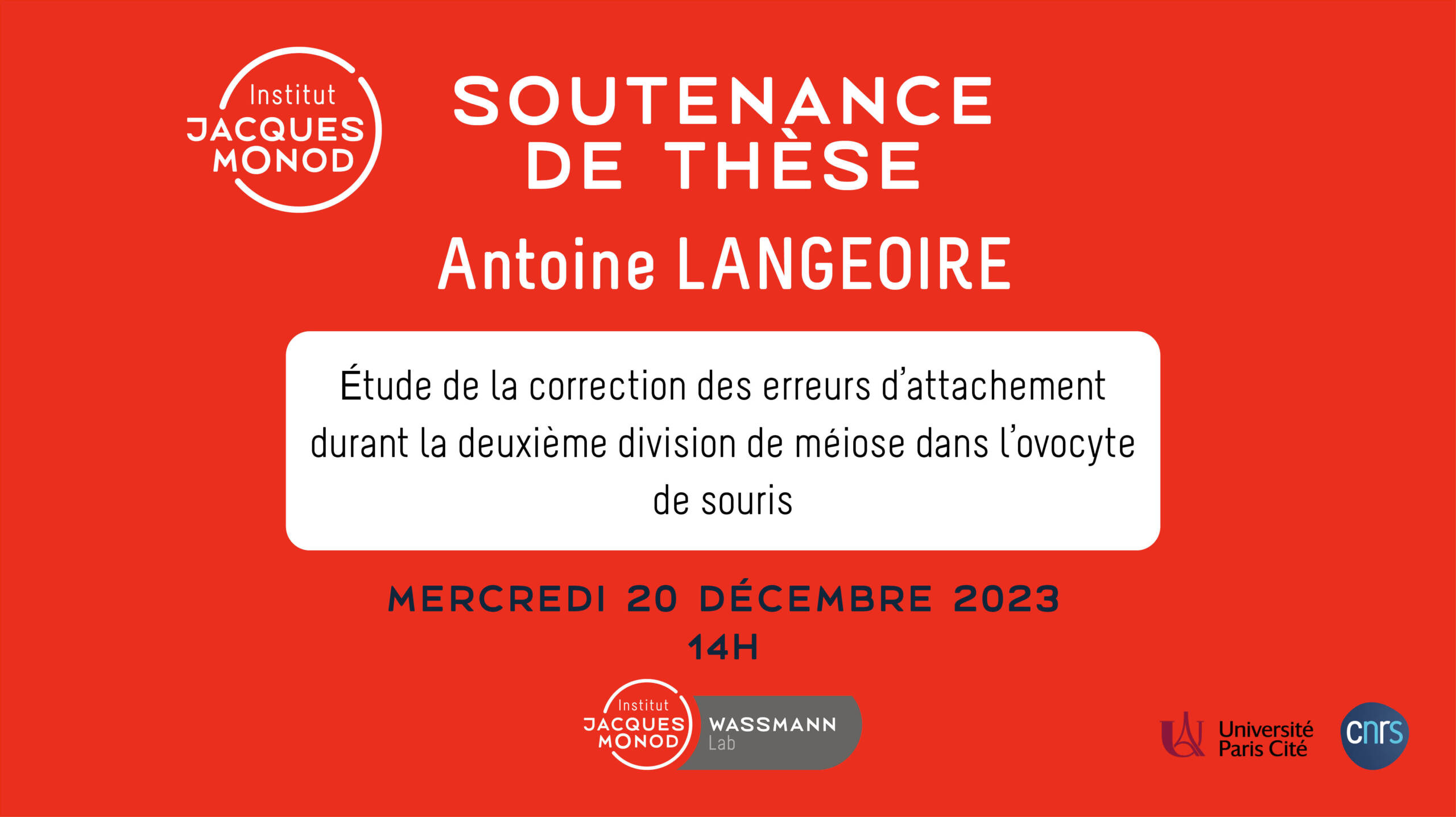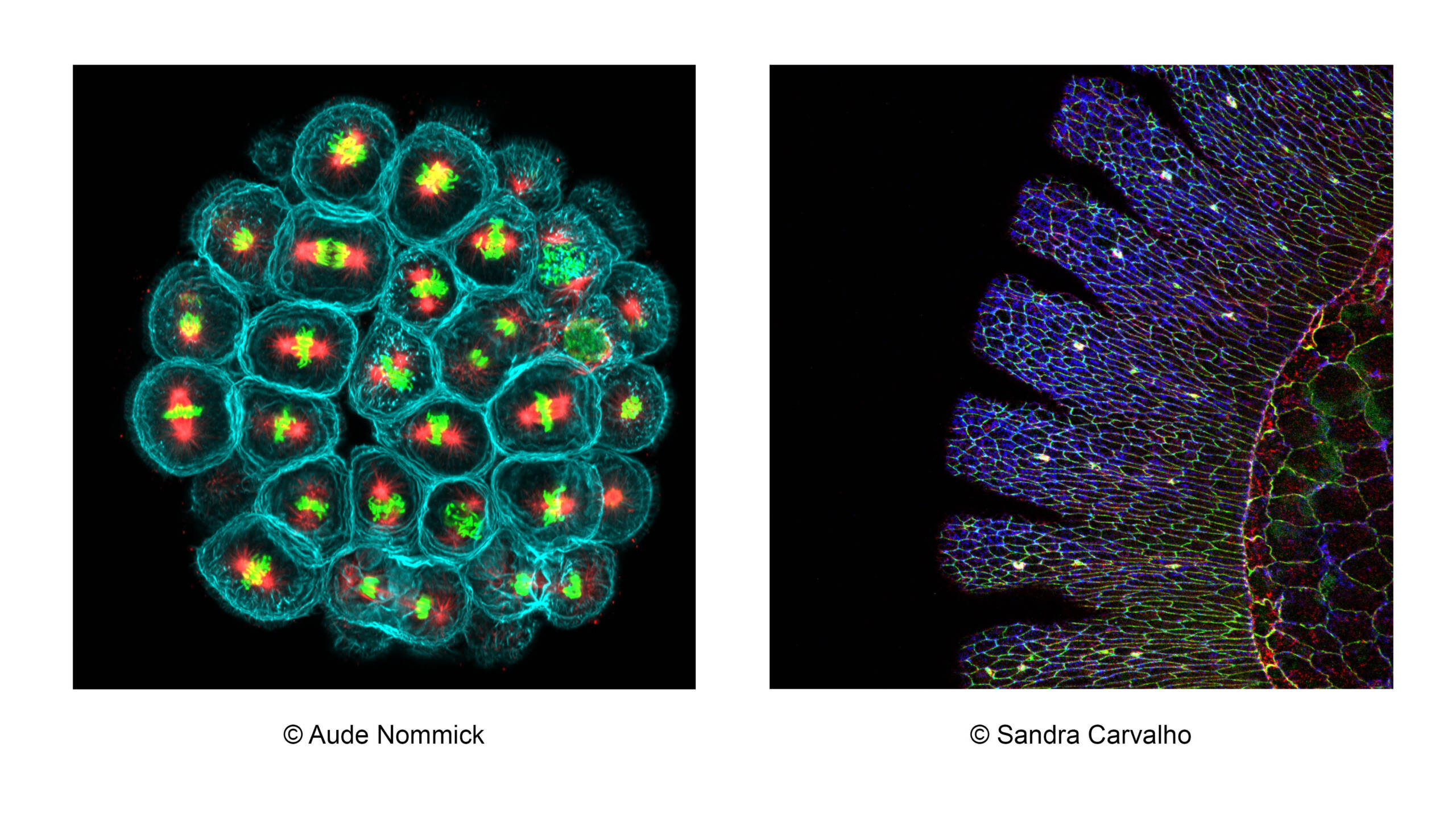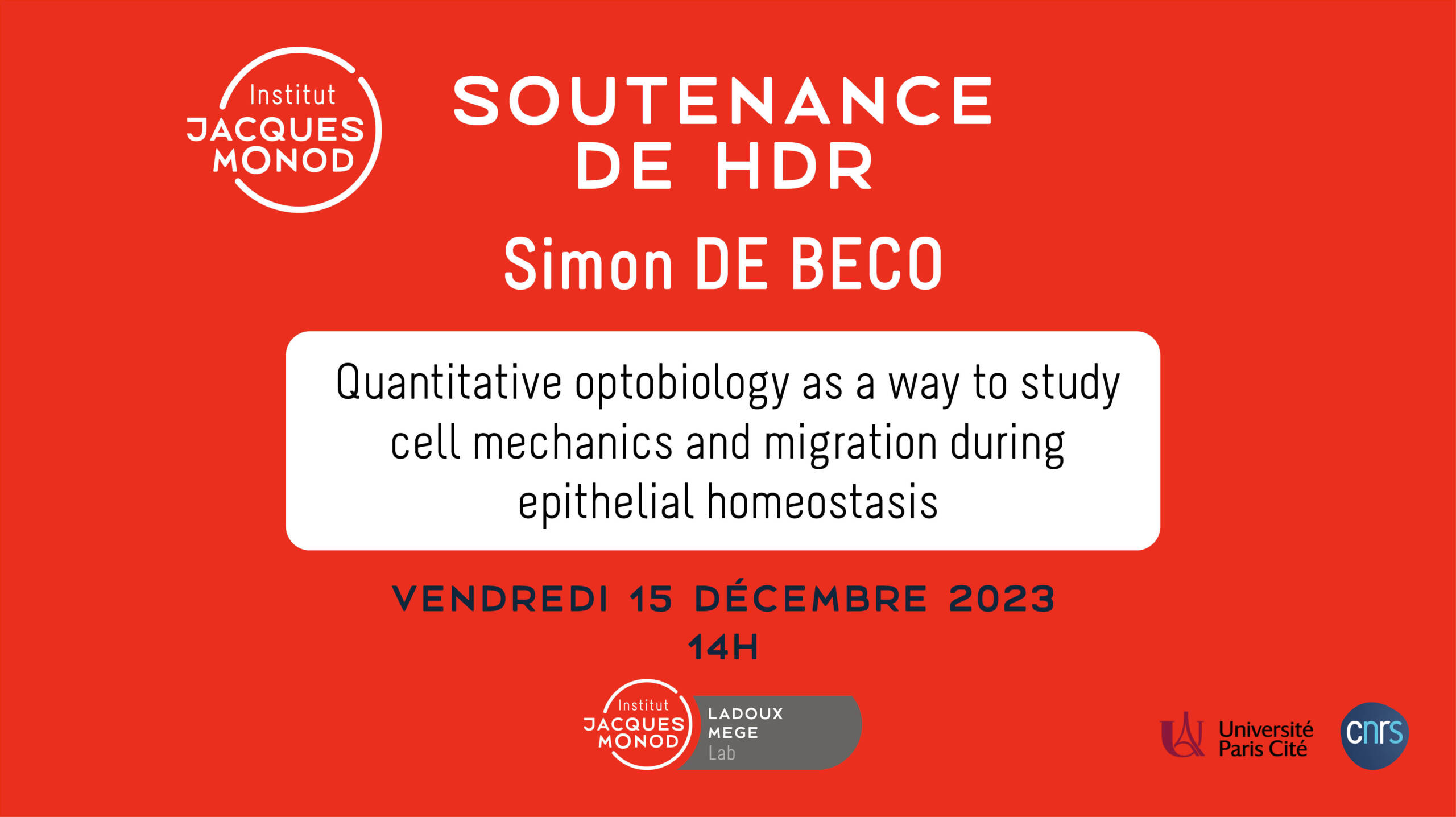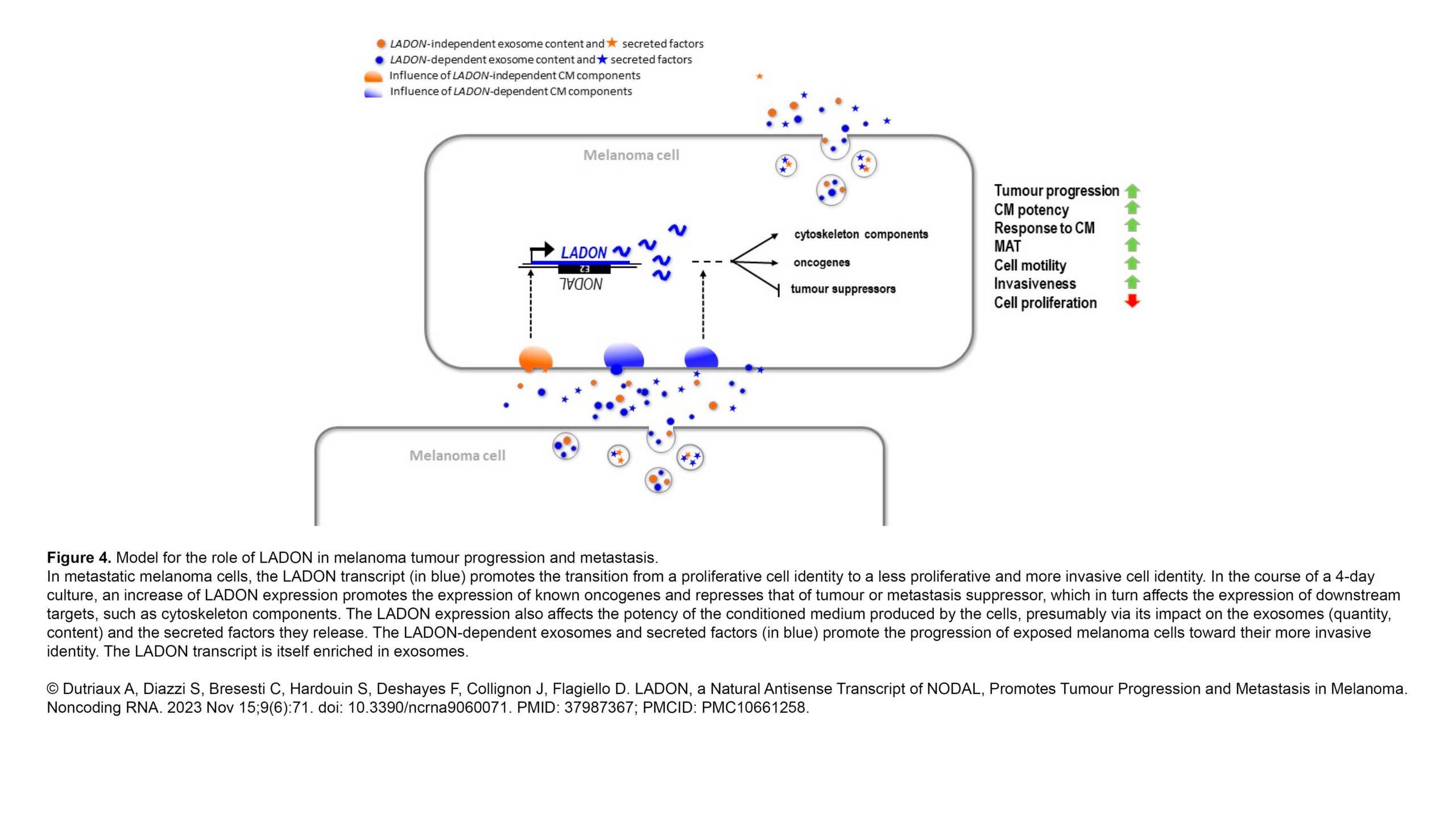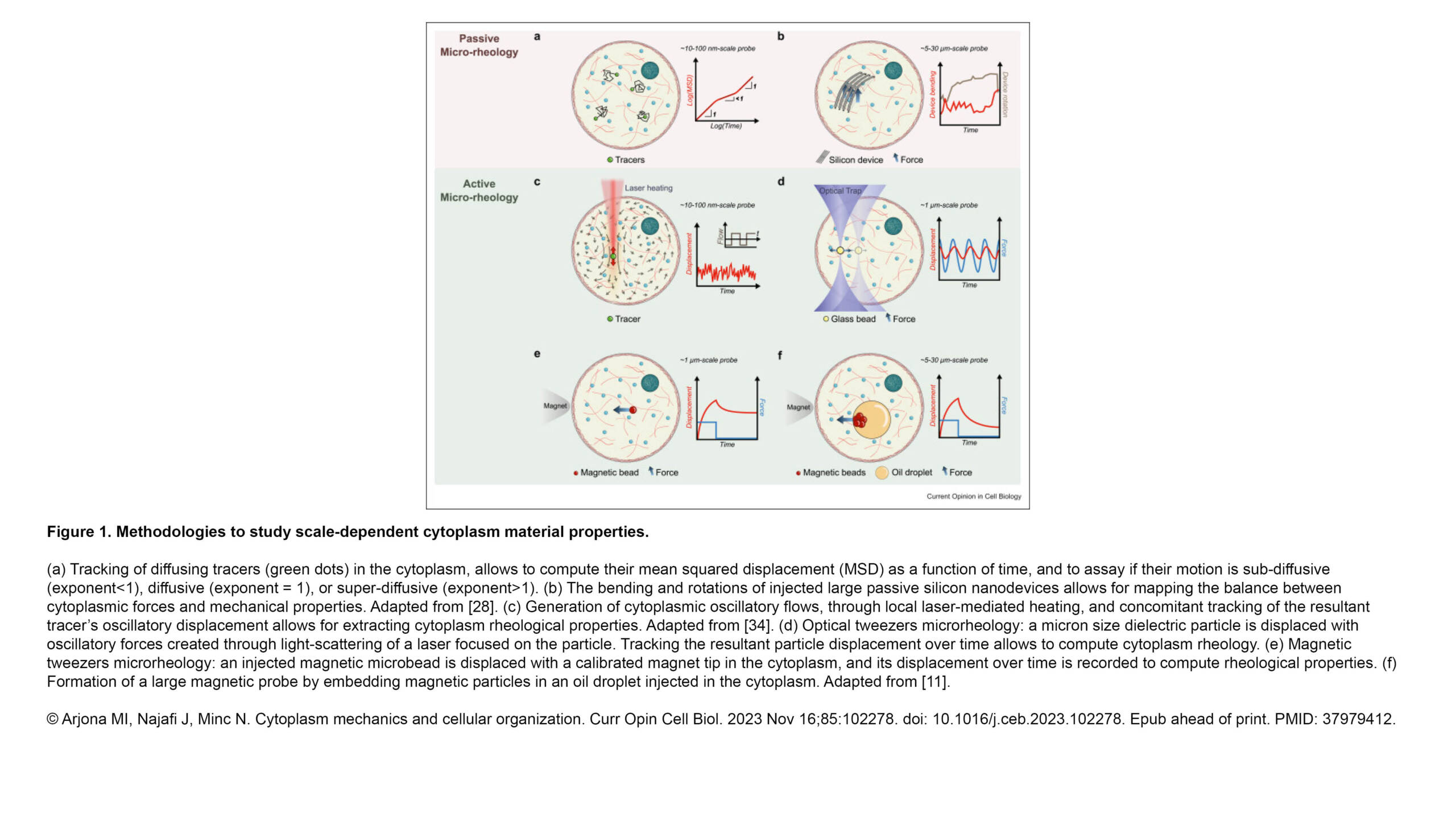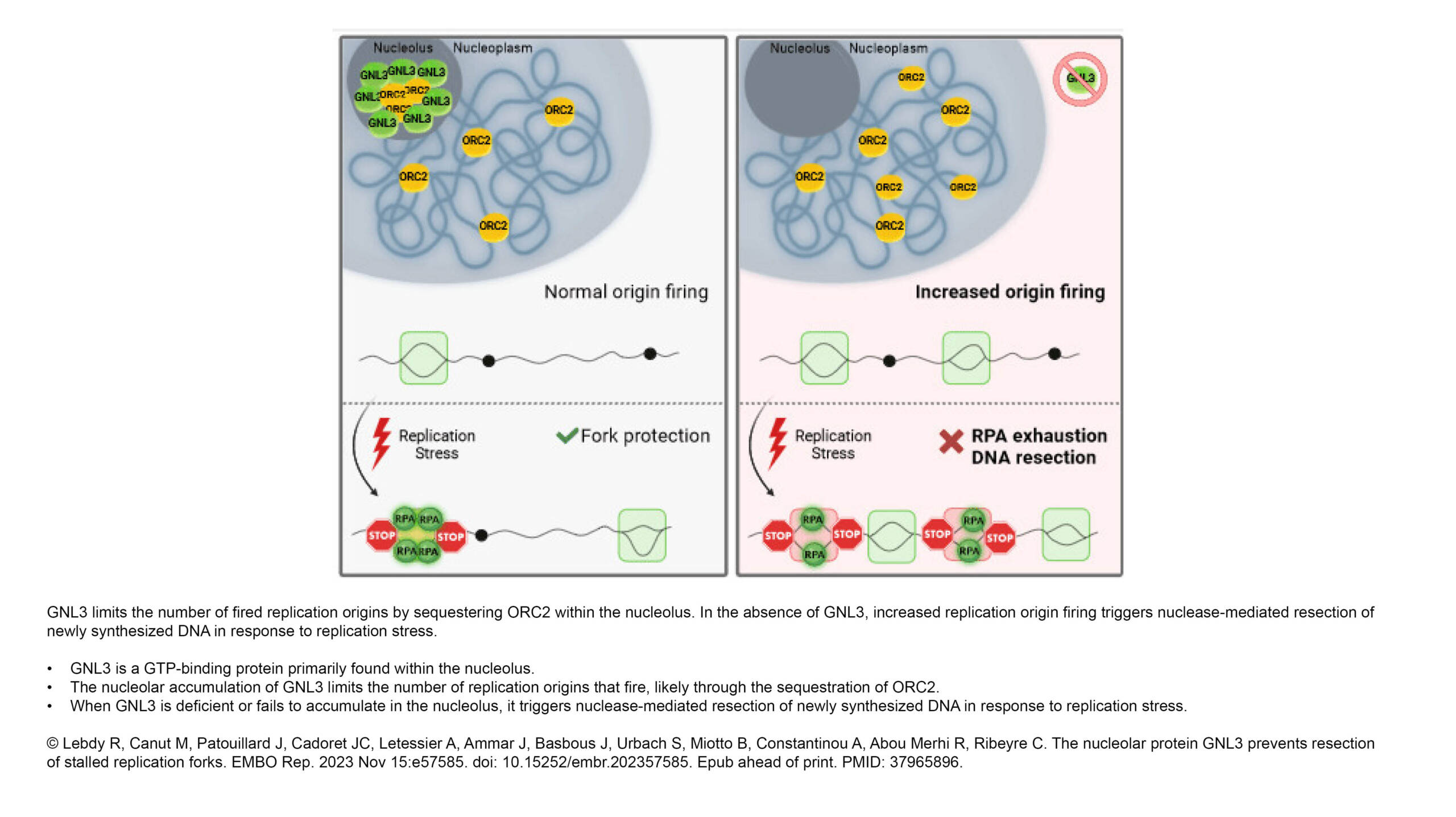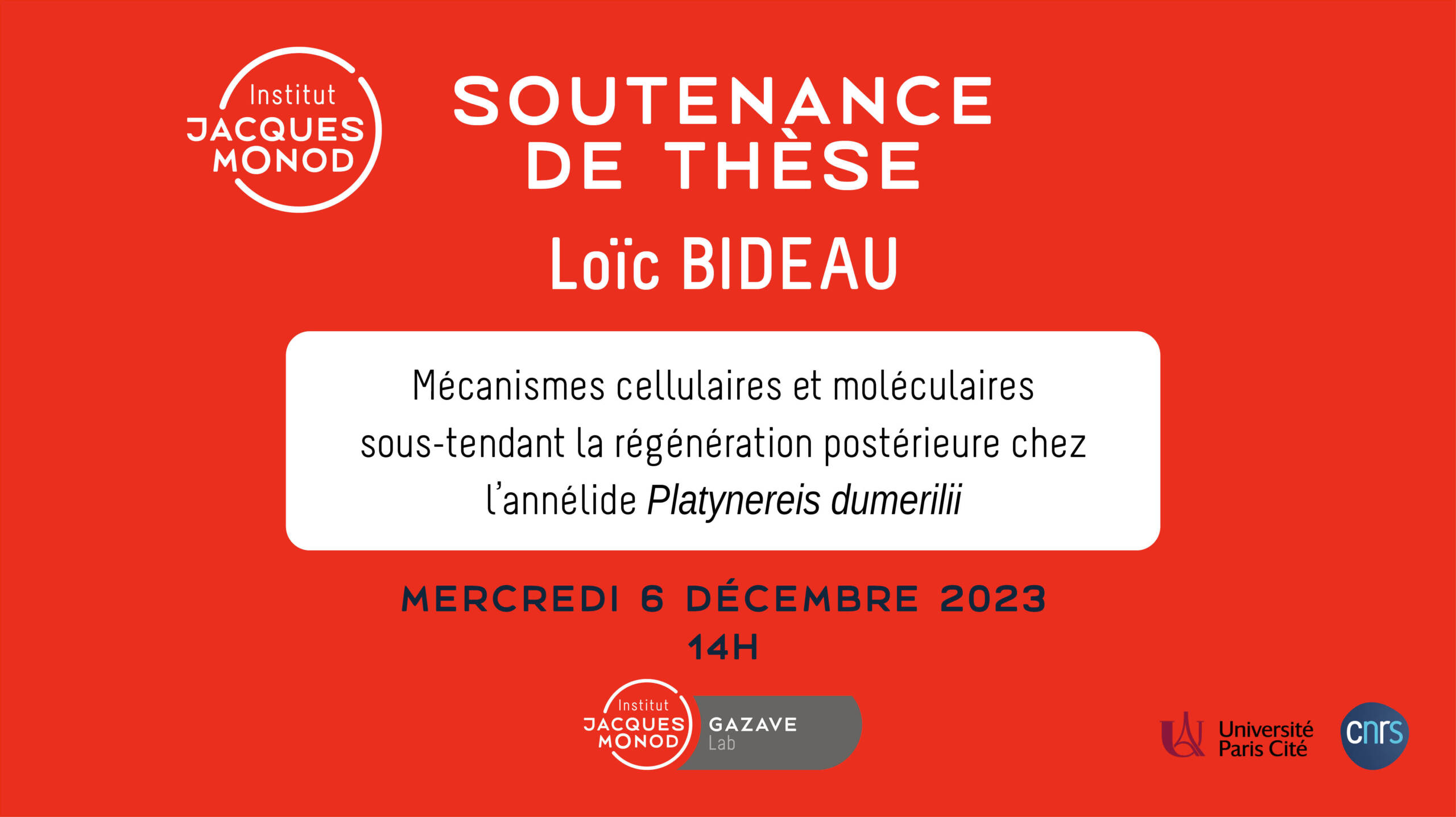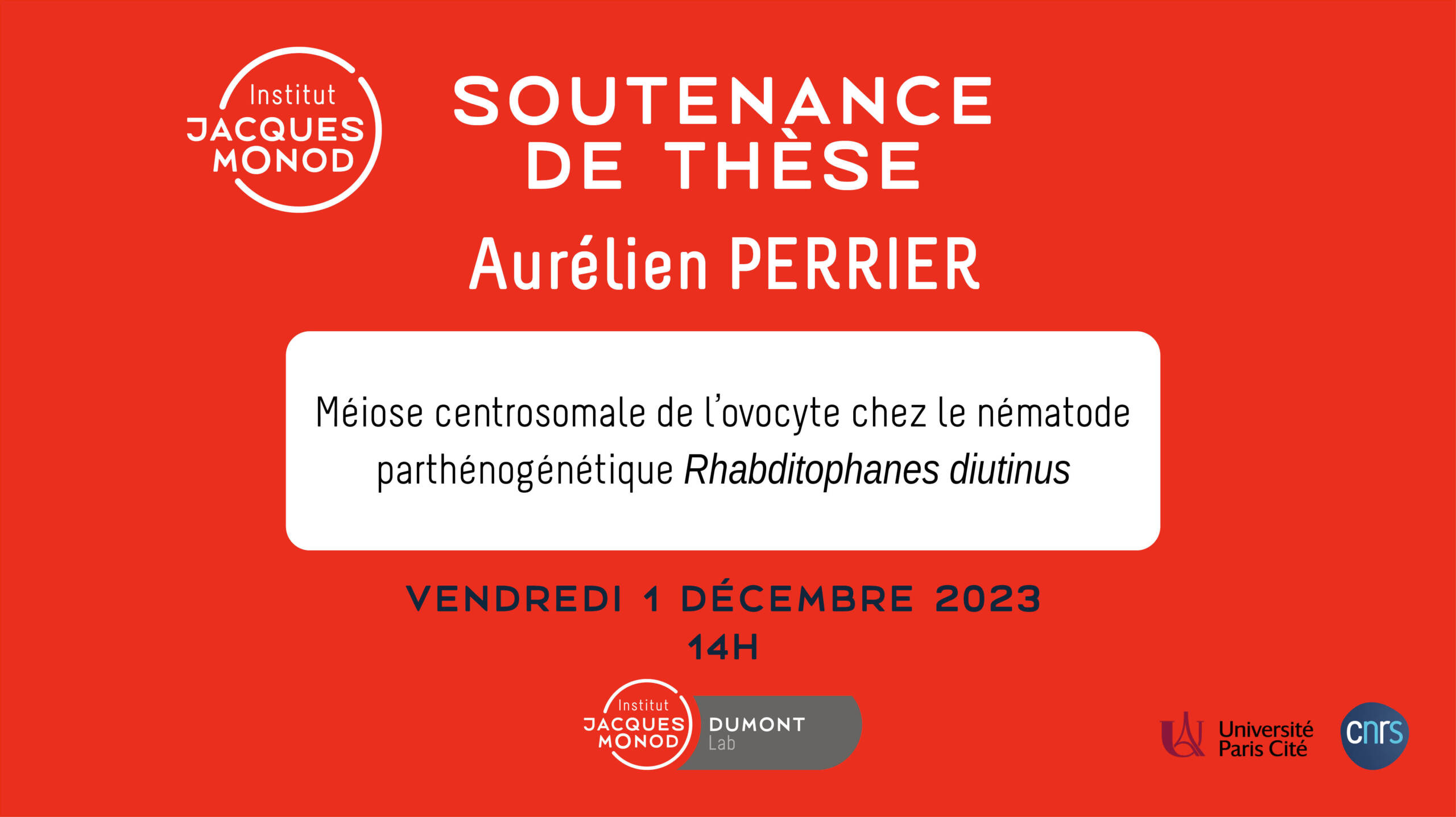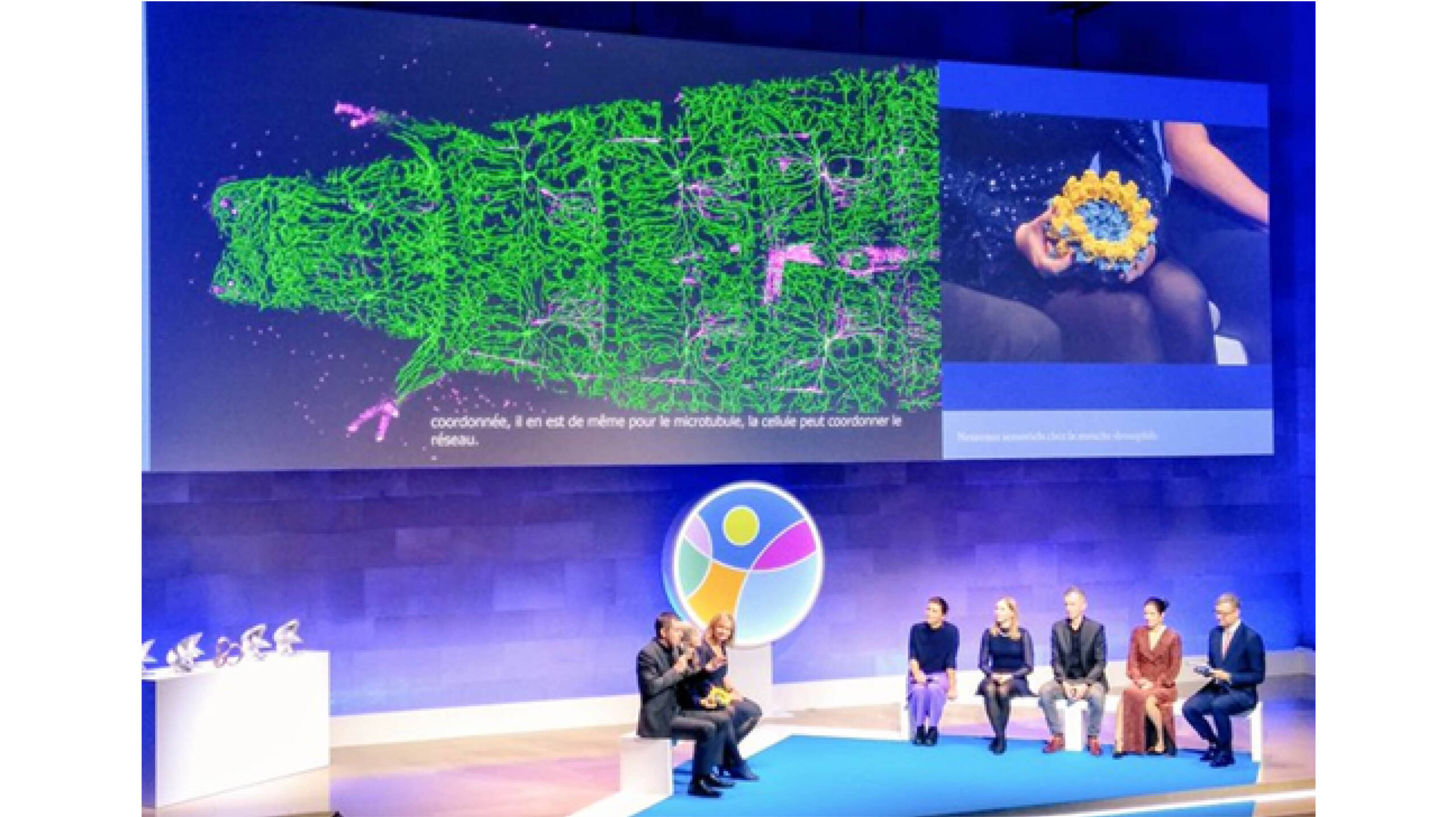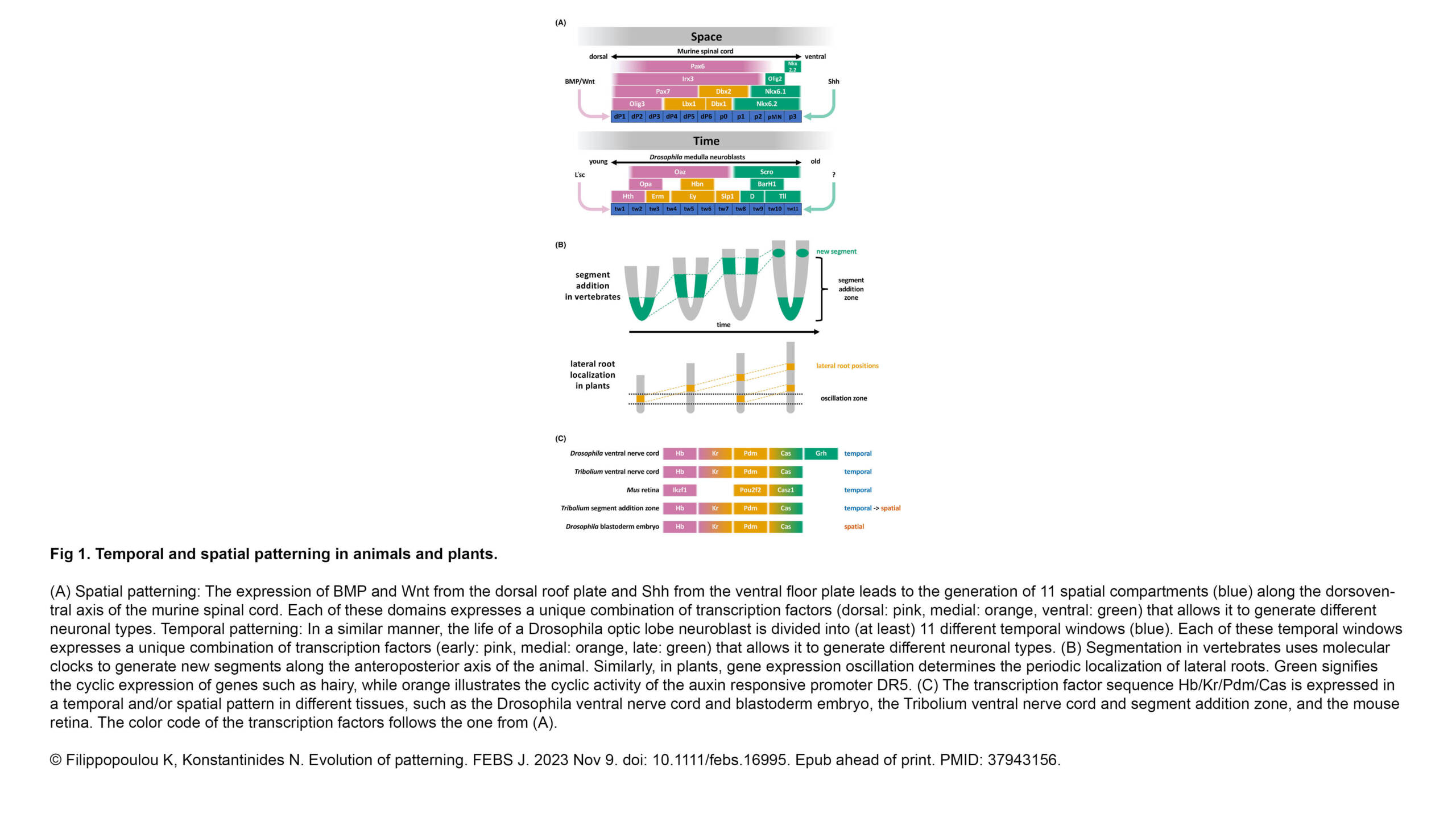Antoine Langeoire (équipe Wassmann) soutiendra sa thèse :
Étude de la correction des erreurs d’attachement durant la deuxième division de méiose dans l’ovocyte de souris
La soutenance aura lieu le mercredi 20 décembre à 14h en salle François Jacob (Institut Jacques Monod, 15 rue Hélène Brion 75013 Paris) et sera présentée en français.
Le jury de thèse…
